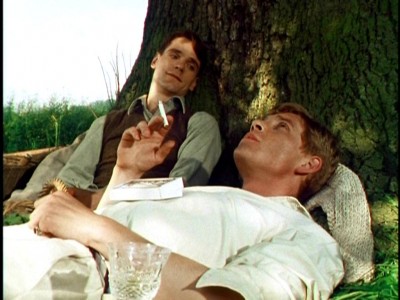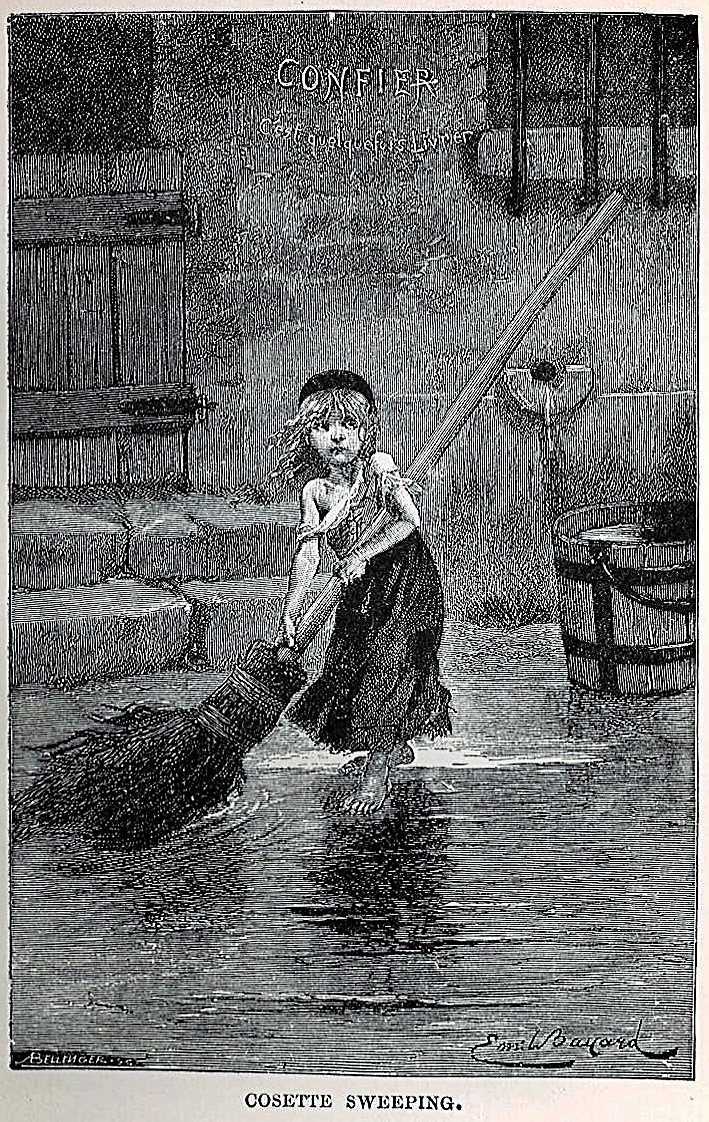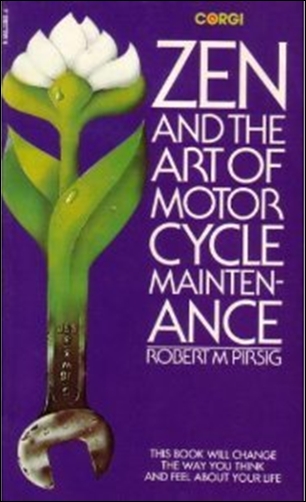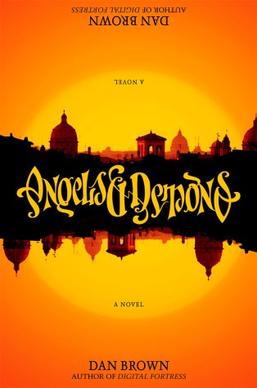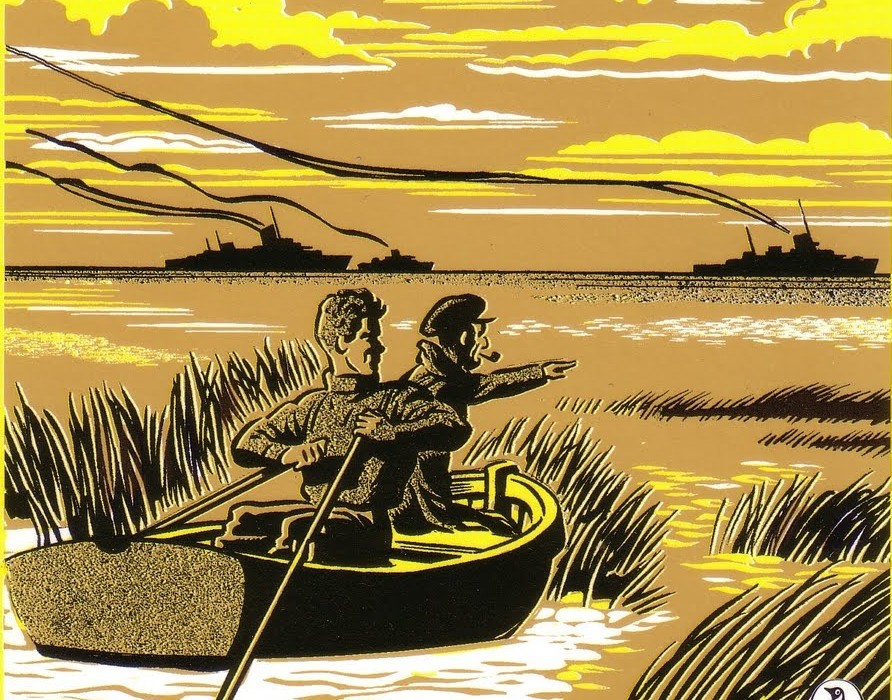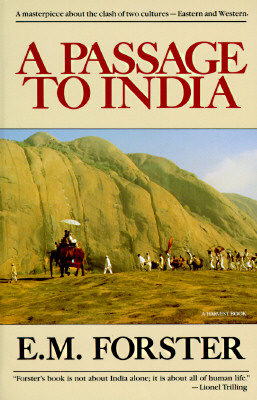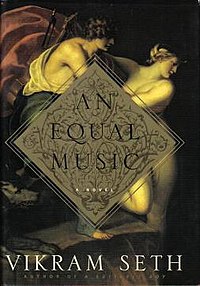Este tema está marcado actualmente como "inactivo"—el último mensaje es de hace más de 90 días. Puedes reactivarlo escribiendo una respuesta.
1Orbasan
This looks like fun!

1-4 books from 19 countries (7.55%)

5 or more books from 2 countries (0.88%)
Create your own visited map of The World
1-4 books from 19 countries (7.55%)
5 or more books from 2 countries (0.88%)
Create your own visited map of The World
2Orbasan
Australia #1
The Mystery of a Hansom Cab by Fergus Hume (Melbourne, 1886)
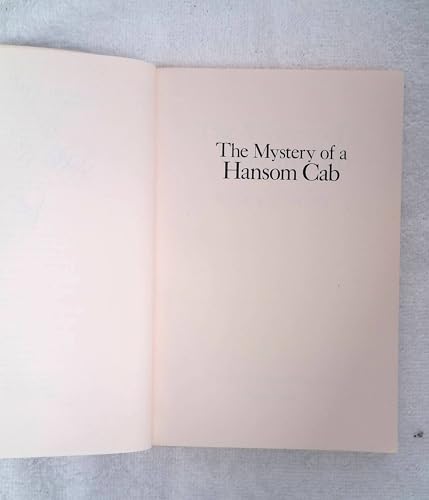
Mystery of a Hansom Cab on wikipedia
The Mystery of a Hansom Cab by Fergus Hume (Melbourne, 1886)

Mrs. Hableton stared suspiciously at the intruder. He was a burly-looking man, with a jovial red face, clean shaven, and his sharp, shrewd-looking grey eyes twinkled like two stars. He was well-dressed in a suit of light clothes, and wore a stiffly-starched white waistcoat, with a massive gold chain stretched across it. Altogether he gave Mrs. Hableton finally the impression of being a well-to-do tradesman, and she mentally wondered what he wanted.
"What d'y want?" she asked, abruptly.
"Does Mr. Oliver Whyte live here?" asked the stranger.
"He do, an' he don't," answered Mrs. Hableton, epigrammatically. "I ain't seen 'im for over a week, so I s'pose 'e's gone on the drink, like the rest of 'em, but I've put sumthin' in the paper as 'ill pull him up pretty sharp, and let 'im know I ain't a carpet to be trod on, an' if you're a friend of 'im, you can tell 'im from me 'e's a brute, an' it's no more but what I expected of 'im, 'e bein' a male."
The stranger waited placidly during the outburst, and Mrs. Hableton, having stopped for want of breath, he interposed, quietly—
"Can I speak to you for a few moments?"
"An' who's a-stoppin' of you?" said Mrs. Hableton, defiantly. "Go on with you, not as I expects the truth from a male, but go on."
"Well, really," said the other, looking up at the cloudless blue sky, and wiping his face with a gaudy red silk pocket-handkerchief, "it is rather hot, you know, and—"
Mrs. Hableton did not give him time to finish, but walking to the gate, opened it with a jerk.
"Use your legs and walk in," she said, and the stranger having done so, she led the way into the house, and into a small neat sitting-room, which seemed to overflow with antimacassars, wool mats, and wax flowers. There were also a row of emu eggs on the mantelpiece, a cutlass on the wall, and a grimy line of hard-looking little books, set in a stiff row on a shelf, presumably for ornament, for their appearance in no way tempted one to read them.
Mystery of a Hansom Cab on wikipedia
4Orbasan
Australia #2
Adventures in Australia by William H. G. Kingston (1885)

Adventures in Australia by William H. G. Kingston (1885)

The scenery was not especially attractive, indeed so great was its sameness that alone they would have been utterly unable to find their way. On either side rose tall stringy-bark and other gum-trees, their curious and narrow leaves affording scarcely any shelter from the rays of the almost vertical sun, the huge white stems from which the bark hung down in ragged masses giving them a weird and dreary aspect.
5Orbasan
Australia #3
Big Little Lies by Liane Moriarty (North Sydney, 2014)

Big Little Lies by Liane Moriarty (North Sydney, 2014)

’So, school politics, girls,’ she said, as she carefully replaced the glass in the box. ‘We’ll start at the top with the Blond Bobs.’
‘Blonde bobs?’ Celeste squinted, as if this were going to be a test afterwards.
‘The Blonde Bobs rule the school. If you want to be on the P&C you have to have a blonde bob.’ Madeline demonstrated the required haircut with her hand. ‘Its like a by-law.’
Jane chortled, a dry little chuckle, and Madeline found herself desperate to make her laugh again.
‘So are these women nice?’ asked Celeste. ‘Or should we steer clear?’
‘Well, they mean well,’ said Madeline. ‘They mean very, very well. They’re like, hmmm, what are they like? They’re like Mum Prefects. They feel very strongly about their roles as school mums. It’s like their religion. They’re fundamentalist mothers.’
6Orbasan
Botswana #1
Tears of the Giraffe by Alexander McCall Smith (Gaborone, 2000)
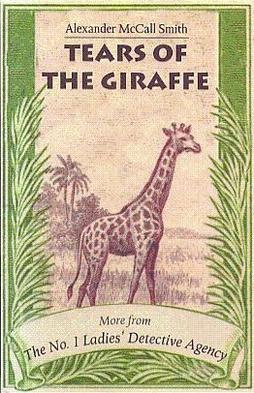
From this series I've read:
1. The No.1 Ladies Detective Agency (1998)
2. Tears of the Giraffe (2000)
3. Morality for Beautiful Girls (2001)
4. The Kalahari Typing School for Men (2002)
No.1 Ladies Detective Agency series on wikipedia
Tears of the Giraffe by Alexander McCall Smith (Gaborone, 2000)

From this series I've read:
1. The No.1 Ladies Detective Agency (1998)
2. Tears of the Giraffe (2000)
3. Morality for Beautiful Girls (2001)
4. The Kalahari Typing School for Men (2002)
No.1 Ladies Detective Agency series on wikipedia
7Orbasan
Denmark #1
Miss Smilla's Feeling for Snow by Peter Høeg (Copenhagen, 1992)

Miss Smilla's Feeling for Snow on wikipedia
Miss Smilla's Feeling for Snow by Peter Høeg (Copenhagen, 1992)

Miss Smilla's Feeling for Snow on wikipedia
9Orbasan
England #1
Pride and Prejudice by Jane Austen (1797)

Pride and Prejudice on wikipedia
Pride and Prejudice by Jane Austen (1797)

"Well, my dear," said he, when she ceased speaking, "I have no more to say. If this be the case, he deserves you. I could not have parted with you, my Lizzy, to any one less worthy."
To complete the favourable impression, she then told him what Mr. Darcy had voluntarily done for Lydia. He heard her with astonishment.
"This is an evening of wonders, indeed! And so, Darcy did every thing; made up the match, gave the money, paid the fellow's debts, and got him his commission! So much the better. It will save me a world of trouble and economy. Had it been your uncle's doing, I must and would have paid him; but these violent young lovers carry every thing their own way. I shall offer to pay him to-morrow; he will rant and storm about his love for you, and there will be an end of the matter."
Pride and Prejudice on wikipedia
15Orbasan
England #3
Middlemarch by George Eliot (Midlands 1829-32)
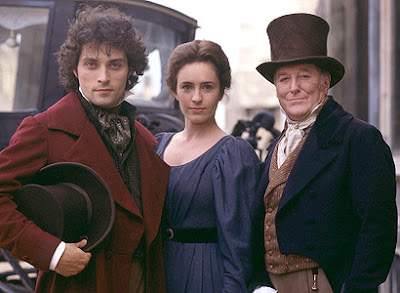
Middlemarch on wikipedia

It was hardly a year since they had come to live at Tipton Grange with their uncle, a man nearly sixty, of acquiescent temper, miscellaneous opinions, and uncertain vote. He had travelled in his younger years, and was held in this part of the county to have contracted a too rambling habit of mind. Mr. Brooke's conclusions were as difficult to predict as the weather: it was only safe to say that he would act with benevolent intentions, and that he would spend as little money as possible in carrying them out. For the most glutinously indefinite minds enclose some hard grains of habit; and a man has been seen lax about all his own interests except the retention of his snuff-box, concerning which he was watchful, suspicious, and greedy of clutch.
In Mr. Brooke the hereditary strain of Puritan energy was clearly in abeyance; but in his niece Dorothea it glowed alike through faults and virtues, turning sometimes into impatience of her uncle's talk or his way of "letting things be" on his estate, and making her long all the more for the time when she would be of age and have some command of money for generous schemes. She was regarded as an heiress; for not only had the sisters seven hundred a-year each from their parents, but if Dorothea married and had a son, that son would inherit Mr. Brooke's estate, presumably worth about three thousand a-year—a rental which seemed wealth to provincial families, still discussing Mr. Peel's late conduct on the Catholic question, innocent of future gold-fields, and of that gorgeous plutocracy which has so nobly exalted the necessities of genteel life.
Middlemarch on wikipedia
18Orbasan
Germany #2
The Sorrows of Young Werther by Goethe (1774)
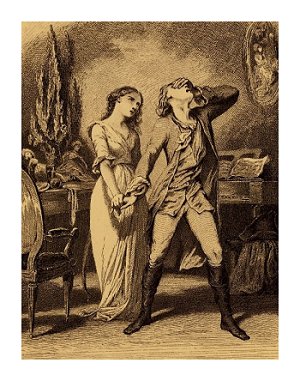
The Sorrows of Young Werther on wikipedia
The Sorrows of Young Werther by Goethe (1774)

July 13. No, I am not deceived. In her dark eyes I read a real interest in me. Yes, I feel it, and I believe my own heart which tells me--dare I say it?--that she loves me. How the idea exalts me in my own eyes. And as you can understand my feelings, I may say to you, how I honour myself because she loves me.
I do not know a man able to take my place in her heart; yet when she speaks of Albert with so much warmth and affection, I feel like a soldier who has been stripped of all his honours. Sometimes when we are talking, in the eagerness of conversation she comes closer to me, and her balmy breath reaches my lips, I feel that I could sink into the earth for very joy. And yet, Wilhelm, if I know myself, and should ever dare--you understand me--No, no; my heart is not so corrupt; it is weak, but is not that a degree of corruption?
She is to me a sacred being; how her simplest song enchants me. Sometimes, when I am ready to commit suicide, she sings some favourite air, and instantly the gloom and madness are dispersed.
The Sorrows of Young Werther on wikipedia
24Orbasan
England #4
Queen Lucia by E F Benson (Riseholme (Broadway, Worcestershire) 1920)

And of course I have read (and reread many times!) the rest of the books (E.F. Benson is one of my favourite authors):
2. Miss Mapp (Tilling (Rye), 1922)
3. Lucia in London (London, 1927)
4. Mapp and Lucia (Rye, 1931)
5. Lucia's Progress (Rye, 1935)
6. Trouble for Lucia (Rye, 1937)
And the short stories:
The Male Impersonator
Desirable Residences
Mapp & Lucia on wikipedia
Queen Lucia by E F Benson (Riseholme (Broadway, Worcestershire) 1920)

Whatever she did—and really she did an incredible deal—she did it with all the might of her dramatic perception, did it in fact with such earnestness that she had no time to have an eye to the gallery at all, she simply contemplated herself and her own vigorous accomplishment.
When she played the piano as she frequently did, (reserving an hour for practice every day), she cared not in the smallest degree for what anybody who passed down the road outside her house might be thinking of the roulades that poured from her open window: she was simply Emmeline Lucas, absorbed in glorious Bach or dainty Scarlatti, or noble Beethoven.
The latter perhaps was her favorite composer, and many were the evenings when with lights quenched and only the soft effulgence of the moon pouring in through the uncurtained windows, she sat with her profile, cameo-like (or like perhaps to the head on a postage stamp) against the dark oak walls of her music-room, and entranced herself and her listeners, if there were people to dinner, with the exquisite pathos of the first movement of the Moonlight Sonata.
Devotedly as she worshipped the Master, whose picture hung above her Steinway Grand, she could never bring herself to believe that the two succeeding movements were on the same sublime level as the first, and besides they "went" very much faster. But she had seriously thought, as she came down in the train today and planned her fresh activities at home of trying to master them, so that she could get through their intricacies with tolerable accuracy. Until then, she would assuredly stop at the end of the first movement in these moonlit seances, and say that the other two were more like morning and afternoon.
And of course I have read (and reread many times!) the rest of the books (E.F. Benson is one of my favourite authors):
2. Miss Mapp (Tilling (Rye), 1922)
3. Lucia in London (London, 1927)
4. Mapp and Lucia (Rye, 1931)
5. Lucia's Progress (Rye, 1935)
6. Trouble for Lucia (Rye, 1937)
And the short stories:
The Male Impersonator
Desirable Residences
Mapp & Lucia on wikipedia
26Orbasan
Romania #1
Dracula by Bram Stoker (Carpathian Mountains 1890s)

Dracula on wikipedia
Dracula by Bram Stoker (Carpathian Mountains 1890s)

When it grew dark there seemed to be some excitement amongst the passengers, and they kept speaking to him, one after the other, as though urging him to further speed. He lashed the horses unmercifully with his long whip, and with wild cries of encouragement urged them on to further exertions. Then through the darkness I could see a sort of patch of grey light ahead of us, as though there were a cleft in the hills. The excitement of the passengers grew greater; the crazy coach rocked on its great leather springs, and swayed like a boat tossed on a stormy sea. I had to hold on. The road grew more level, and we appeared to fly along. Then the mountains seemed to come nearer to us on each side and to frown down upon us; we were entering on the Borgo Pass.
One by one several of the passengers offered me gifts, which they pressed upon me with an earnestness which would take no denial; these were certainly of an odd and varied kind, but each was given in simple good faith, with a kindly word, and a blessing, and that strange mixture of fear-meaning movements which I had seen outside the hotel at Bistritz—the sign of the cross and the guard against the evil eye.
Then, as we flew along, the driver leaned forward, and on each side the passengers, craning over the edge of the coach, peered eagerly into the darkness. It was evident that something very exciting was either happening or expected, but though I asked each passenger, no one would give me the slightest explanation. This state of excitement kept on for some little time; and at last we saw before us the Pass opening out on the eastern side. There were dark, rolling clouds overhead, and in the air the heavy, oppressive sense of thunder. It seemed as though the mountain range had separated two atmospheres, and that now we had got into the thunderous one.
I was now myself looking out for the conveyance which was to take me to the Count. Each moment I expected to see the glare of lamps through the blackness; but all was dark. The only light was the flickering rays of our own lamps, in which the steam from our hard-driven horses rose in a white cloud. We could see now the sandy road lying white before us, but there was on it no sign of a vehicle. The passengers drew back with a sigh of gladness, which seemed to mock my own disappointment. I was already thinking what I had best do, when the driver, looking at his watch, said to the others something which I could hardly hear, it was spoken so quietly and in so low a tone; I thought it was “An hour less than the time.” Then turning to me, he said in German worse than my own:—
“There is no carriage here. The Herr is not expected after all. He will now come on to Bukovina, and return to-morrow or the next day; better the next day.” Whilst he was speaking the horses began to neigh and snort and plunge wildly, so that the driver had to hold them up. Then, amongst a chorus of screams from the peasants and a universal crossing of themselves, a calèche, with four horses, drove up behind us, overtook us, and drew up beside the coach. I could see from the flash of our lamps, as the rays fell on them, that the horses were coal-black and splendid animals. They were driven by a tall man, with a long brown beard and a great black hat, which seemed to hide his face from us. I could only see the gleam of a pair of very bright eyes, which seemed red in the lamplight, as he turned to us.He said to the driver:—
“You are early to-night, my friend.”
The man stammered in reply:—
“The English Herr was in a hurry,” to which the stranger replied:—
“That is why, I suppose, you wished him to go on to Bukovina. You cannot deceive me, my friend; I know too much, and my horses are swift.” As he spoke he smiled, and the lamplight fell on a hard-looking mouth, with very red lips and sharp-looking teeth, as white as ivory.
One of my companions whispered to another the line from Burger’s “Lenore”:—
“Denn die Todten reiten schnell”—
(“For the dead travel fast.”)
Dracula on wikipedia
29Orbasan
Sweden #1
The Millenium Trilogy by Stieg Larsson (2005-2007)

Millenium on wikipedia
I also read the fourth book, The Girl in the Spider's Web by David Lagercrantz, but it just wasn't the same unfortunately.
The Millenium Trilogy by Stieg Larsson (2005-2007)
Millenium on wikipedia
I also read the fourth book, The Girl in the Spider's Web by David Lagercrantz, but it just wasn't the same unfortunately.
35Orbasan
Norway #2
The Redbreast by Jo Nesbø (Oslo, 2000)
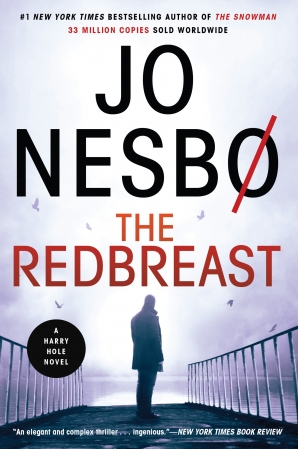
I've also read the following Harry Hole books:
1. The Bat (Sydney, 1997)
4. Nemesis (Oslo 2002)
5. The Devil's Star (Oslo 2003)
6. The Redeemer (Oslo 2005)
7. The Snowman (Oslo & Bergen, 2007)
The Redbreast on Wikipedia
The Redbreast by Jo Nesbø (Oslo, 2000)

I've also read the following Harry Hole books:
1. The Bat (Sydney, 1997)
4. Nemesis (Oslo 2002)
5. The Devil's Star (Oslo 2003)
6. The Redeemer (Oslo 2005)
7. The Snowman (Oslo & Bergen, 2007)
The Redbreast on Wikipedia
39Orbasan
England #5
The Hound of the Baskervilles by Arthur Conan Doyle (1902)

The Hound of the Baskervilles on wikipedia
The Hound of the Baskervilles by Arthur Conan Doyle (1902)

“Has anything escaped me?” I asked with some self-importance. “I trust that there is nothing of consequence which I have overlooked?”
“I am afraid, my dear Watson, that most of your conclusions were erroneous. When I said that you stimulated me I meant, to be frank, that in noting your fallacies I was occasionally guided towards the truth."
The Hound of the Baskervilles on wikipedia
44Orbasan
Ireland #1
Absolution by Murder by Peter Tremayne (664)

From the Sister Fidelma series, I've also read:
2. Shroud for the Archbishop (664)
3. Suffer Little Children (664)
4. The Subtle Serpent (666)
5. The Spider's Web (666)
6. Valley of the Shadow (666)
7. The Monk Who Vanished (666)
8. Act of Mercy (666)
9. Our Lady of Darkness
10. Smoke in the Wind
11. The Haunted Abbot (666)
12. Badger's Moon (667)
Sister Fidelma series on wikipedia
Absolution by Murder by Peter Tremayne (664)
From the Sister Fidelma series, I've also read:
2. Shroud for the Archbishop (664)
3. Suffer Little Children (664)
4. The Subtle Serpent (666)
5. The Spider's Web (666)
6. Valley of the Shadow (666)
7. The Monk Who Vanished (666)
8. Act of Mercy (666)
9. Our Lady of Darkness
10. Smoke in the Wind
11. The Haunted Abbot (666)
12. Badger's Moon (667)
Sister Fidelma series on wikipedia
46Orbasan
Italy #2
Masters of Rome by Colleen McCullough (Ancient Rome 110-27BC)
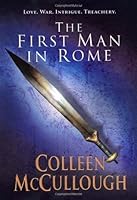
1. The First Man in Rome (110-100 BC)
2. The Grass Crown (97–86 BC)
3. Fortune's Favourites (83–69 BC)
4. Caesar's Women (67–59 BC)
5. Caesar (54–48 BC)
6. The October Horse (48–41 BC)
7. Antony and Cleopatra (41–27 BC)
Masters of Rome on wikipedia
Masters of Rome by Colleen McCullough (Ancient Rome 110-27BC)

1. The First Man in Rome (110-100 BC)
2. The Grass Crown (97–86 BC)
3. Fortune's Favourites (83–69 BC)
4. Caesar's Women (67–59 BC)
5. Caesar (54–48 BC)
6. The October Horse (48–41 BC)
7. Antony and Cleopatra (41–27 BC)
Masters of Rome on wikipedia
52Orbasan
So that's 50 books - 50/960 points.
19 countries with 1-4 books.
3 countries with 5 or more books - England, France, India.
On to part II
19 countries with 1-4 books.
3 countries with 5 or more books - England, France, India.
On to part II


